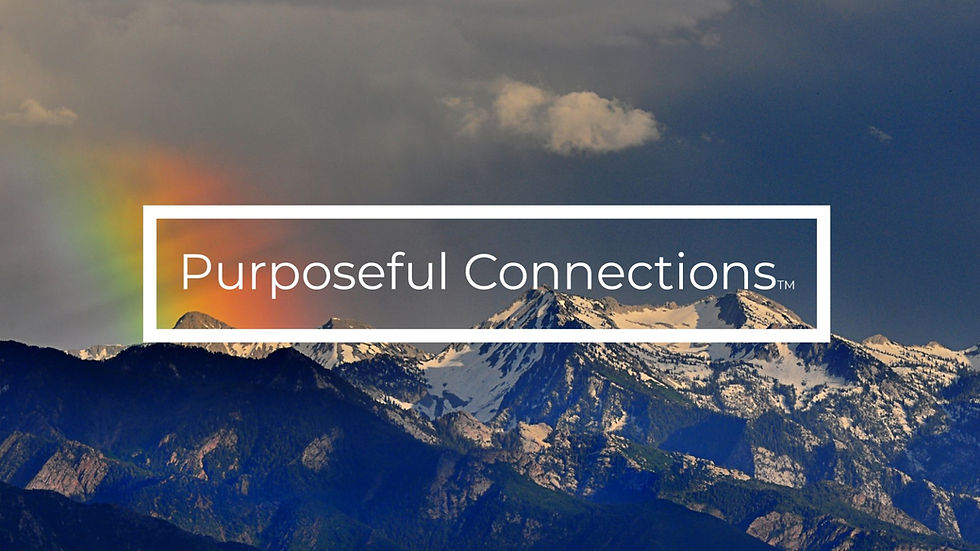It's been a record breaking summer. 🔥 What are companies doing about it?
- CCOP Team

- Jul 25, 2023
- 3 min read
Sharp perspectives. Deep expertise. Cutting-edge innovations. Purposeful Connections is your bi-weekly source for the latest in purpose and ESG. Subscribe here.

Extreme. Intense. Unbearable.
These are just a few of the adjectives used to describe temperatures around the world in recent weeks. "The temperatures, afflicting so much of the world all at once, were a withering reminder that climate change is a global crisis, driven by human-made forces: the emissions of heat-trapping gases, mainly caused by the burning of fossil fuels," said the New York Times. The impacts of climate change—and extreme heat in particular—are reshaping our cities, coastlines, parks, and increasingly, our day-to-day lives.
Companies around the world are taking steps to help plan for, mitigate, and potentially even reverse climate impacts (we included a few below). Luckily, there's tremendous opportunity in tackling such challenges; while a decade ago the economic upside of taking climate action was less clear, organizations like the IMF have firmly established the opportunity at hand: "smart action against climate change doesn’t only stop bad things happening, it leads to increased efficiency, drives new technology, and lowers risk. These benefits in turn stimulate investment, generating jobs, creating healthier economies, and boosting the livelihoods and well-being of citizens, even in the near term."
How cool is your community?
Temperatures this summer have already broken records, reinforcing the importance of initiatives like GAF's Cool Community Project. One of North America's leading roofing and waterproofing manufacturers, GAF also produces StreetBond, an innovative coating used for bike and bus lanes, playgrounds, and pedestrian areas. One of StreetBond's benefits is its ability to cool surfaces, and this insight led GAF to pilot a project in the Los Angeles neighborhood of Pacoima, which is often referred to as a "heat island." Seven months into the project, StreetBond's cooling capabilities (the coating can reflect up to 60% of sunlight) have resulted in a 20–25% reduction in the urban heat island effect. // Sustainable Brands—GAF's first urban heat island project produces cool results // Dezeen—GAF applies solar-reflective coating to mitigate Los Angeles heat
A better view of climate change. If you live in an urban area—especially one adjacent to a major body of water—you're probably seeing an uptick in projects reshaping critical infrastructure in response to climate change. Cities like New York and Chicago are rapidly redesigning and reinforcing key areas to be more climate resilient. Increasingly, decision makers are turning to tools like WSP's ClimateVue to help inform their projects—including most new developments, which need to be located, engineered, and designed with climate resiliency in mind. ClimateVue, which includes a suite of tools that equips decision-makers with long-range insights on climate-related impacts, was recently awarded a SEAL Sustainable Product Award. // WSP—ClimateVue platform earns SEAL Sustainable Product Award // Seal Awards—2023 Business Awards *WSP is a CCOP client.
A smarter approach to wildfires.
Of the ten most destructive wildfires on record, eight have occurred since 2017. Beyond the immediate effect of wildfires—which can torch forests and flatten entire communities—there is an immense public health toll from the air quality conditions such fires produce. Each year, 33,500 deaths can be attributed to the impact of wildfires on air quality, according to FastCompany. Enter "firetech," an emerging category of innovations designed to reduce the risk of wildfires, mitigate both immediate and long-term impacts, and protect land, communities, and lives. From AI and autonomous helicopters to smarter insurance underwriting, companies are accelerating innovations aimed at predicting, spotting, slowing, and extinguishing fires, faster. // FastCompany—Inside the future of firetech and the VC making it happen

Tapestry, the parent company of renowned brands Kate Spade, Coach, and Stuart Weitzman, plays the vital role of seamlessly integrating the distinctive aspects of each brand into a single tapestry guided by its purpose to Stretch What’s Possible. We invited David Casey, Chief Inclusion and Social Impact Officer, to share how Tapestry executes this through circular products, philanthropy, and its framework focused on four core objectives to promote equity, inclusion, and diversity.




Comments